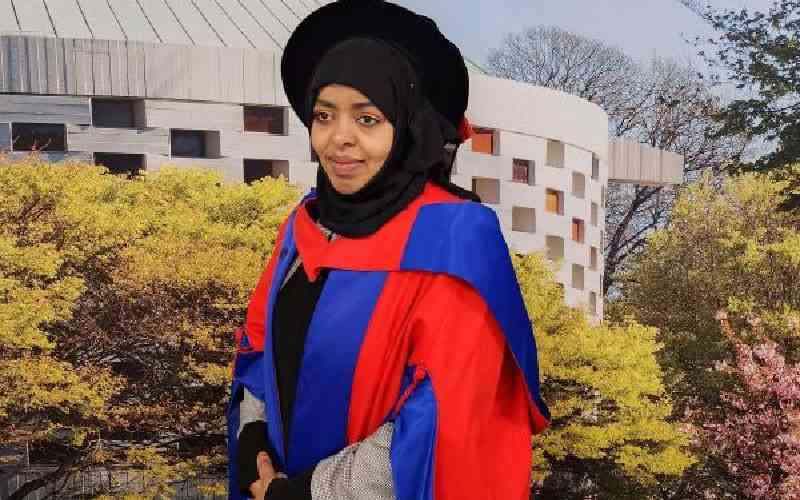×
The Standard e-Paper
Smart Minds Choose Us

When she scored a paltry 252 marks in the Kenya Certificate of Primary Education exam amid a lot of struggle, not many would have imagined Tahira Mohamed becoming one of the youngest PhD holders in Kenya.
But on January 25, this year her dream came true in spectacular fashion, graduating with a PhD from the University of Sussex, Brighton, one of the best in development studies.